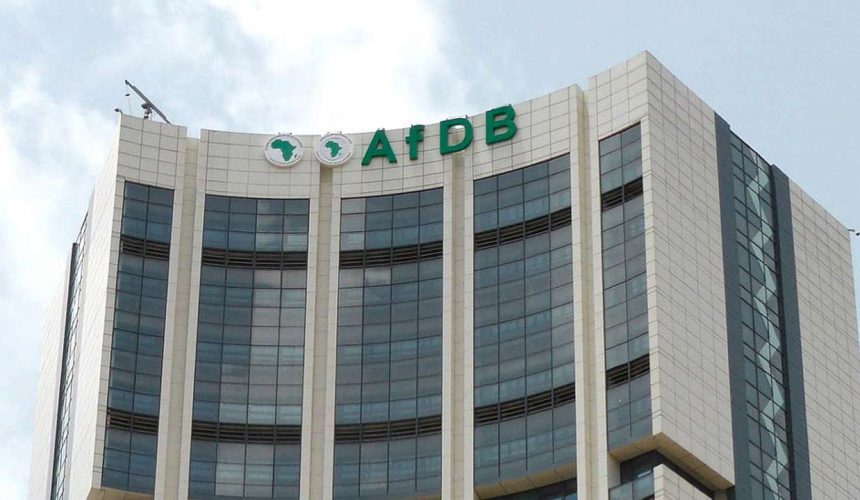When Promasidor began the production of powdered milk in 28g sachets, markets watchers wondered how long this trend will last.
Over 20 years down the line virtually all dairy brands have followed the trend – giving consumers the option of purchasing milk in smaller, pocket-friendly units.
With the current austere economy compounded by the recession, more and more fast moving consumer goods (FMCG) companies have followed suit. Now almost every household grocery has its minute alternative – from chocolate drinks, to cleaning agents, toiletries, breakfast cereals and the like.
A survey of the market revealed that many brands now produce more of their pocket-friendly options as against the regular packs. “We discovered that our Loya milk in small sachets sell faster than the tins. These days, not many people can afford the 400g packs,” said a Promasidor spokesperson.
Many breakfast cereals like Cornflakes, Nestlé’s Golden Morn and Quaker Oats now have been repackaged with options of smaller packs. “Part of my child’s food is Golden Morn but since the economic downturn, the normal pack has increased from N450 to N600 while the 900g pack now costs N1,100 instead of N850. I resorted to buying their 50g sachets which serves my daughter just one meal but since it is N100, at least, I can still afford that compared to buying something of N600,” said Mrs. Fatima Yunus, a businesswoman in Lagos.
However, for many people, small sachets only satisfy their short-term cravings. “I buy the sachet cornflakes for my children also because even a whole 350g pack wouldn’t necessarily fill their stomachs. So whenever they disturb me too much for cornflakes, it is nice that I can just buy them three 50g sachets at N70 each instead of a whole pack at N500,” explained Mrs. Maureen Uche, a teacher in Benin-City.
Some years ago, Unilever began packaging Closeup toothpaste in smaller tubes as well as 15g sachets. Weeks ago, GlaxoSmithKline followed suit by introducing 15g sachets of Macleans toothpaste.
Being a bachelor and an Abuja-based engineer, Jerry Akpan always finds himself on various building sites in different parts of the state hence, he is always on the move. He said: “I grew up with Macleans toothpaste but from my University days, I started loving Closeup because they had different sizes especially the sachets. I buy them when I need to travel or I am away from home for a few days. It was nice that instead of carrying the whole tube of toothpaste, I could just buy a small sachet that could last for a few days. But I was very excited when I walked into a shop and saw the new Macleans sachets. With this economy; the smaller, the cheaper and better for me.”
Meanwhile, some manufacturers have subtly reduced the quantity of the products but tried to maintain the normal price. A 250g pack of Sunlight detergent previously sold at N120. Despite the recession, the price has remained unchanged however; the pack has been reduced to 225g.
UAC’s popular snack, Gala Beef roll has managed to retain its N50 price tag for about a decade now. Nevertheless, regular consumers of the snack roll have noticed a slight reduction in the size of roll itself. “The packet is still the same length but the roll itself is smaller than before. In the past, I couldn’t even finish a roll of Gala when I take it with a soft drink, but these days, I finish it conveniently,” said Opeyemi Ogunsanwo, a media practitioner in Lagos.
School children are not left out of the reduced quantity as most kiddie’s snacks have been reduced in size or repackaged. “Children in school love Coaster biscuits a lot. It is one of the fastest biscuits we sell but they the manufacturers increase the price to N10 from N5. However, they also increased the quantity from four to six biscuits per pack. When the whole dollar matter just started, we tried increasing our prices to N15 but it didn’t work because the children stopped buying biscuits. Now, they have again reduced the biscuits back to four pieces but it is now N10,” said Solomon Akunegbu, a trader in Festac Town.
Most biscuit makers have repackaged their biscuits by either reducing the number of units per pack or increasing some. With this development, most biscuit brands now sell for N10. Princess Cakes that used to sell at N50 for three small cup cakes is still sold at N50 but the cup cakes have been reduced to two.
Stakeholders in the manufacturing industry have advised against reducing quality or / and quantity saying that it could adversely affect patronage.
President, Manufacturers Association of Nigeria (MAN), Frank Jacobs, said: “The moment you do that (reduced quality or quantity), a loyal consumer knows the size of the product and might boycott the product. This is the implication – when a consumer is lost, it is usually expensive and difficult to get them back because you will first have to get their confidence back”.
In this regard, Jacobs posited that price increase is a better option given the circumstances. “Sometimes, it becomes inevitable to increase prices especially at a time of higher production costs. Unfortunately, there is a lot of resistance to price increase of manufactured products,’’ he said.
Unfortunately, many essential goods have witnessed between 30 to sometimes 50 percent increase on the actual price. This situation sometimes causes people to resort to alternative options.
CEO of SKG Pharma and chairman of Pharmaceutical Manufacturers Group of the Manufacturers Association of Nigeria (PMG-MAN), Okey S. Akpa, in February had said that there would be immense drug production challenges if the scarcity of forex persisted. He also said that prices of drugs were likely to go up.
“There is going to be absolute drought of raw materials. This time around, we are talking about critical raw materials; what we classify as active pharmaceutical ingredients. Nearly every manufacturer is using about the last set of raw materials they have got and what we see and foresee that is going to happen is scarcity of medicines, essential medicines and when they are available, the cost will go up. This is going to happen if the current level of scarcity of forex persists,” he said.
Common over-the-counter drugs like Vitamins B-Complex and C, Folic Acid and Paracetamol have increased in price. “Sachet of paracetamol that used to be N20 is now like N40 or N50. Folic Acid bottle of 100 tablets used to cost N150; it is now N300. Vitamin C has jumped from N120 for a bottle of 100 tablets now costs N250. I had to stop buying these supplements for my family. I have resorted to buying oranges or whatever fruit is in season even though they aren’t much cheaper. As for paracetamol, I just buy it when needed instead of buying a whole packet and keeping in the First Aid box,” said Mrs. Chizoba Egbulam, a Marketing Executive in Enugu.
Many Nigerians have also embraced alternative medicine instead of orthodox medicine due to high price hike. “My daughter had typhoid and I took her to the health centre. The antibiotic we bought from the health centre was N1,000 instead of N650 and that’s a subsidized rate. By the time we went to the pharmacy, the drug that would have cost N1,500 now costs N2,500. When I fell sick, I took Agbo (herbal concoction) and paid like N300 because I couldn’t imagine how much I would have had to spend buying drugs,” confessed Edi Okoro, an Insurance Broker in Lagos.
The housing sector is also greatly affected by the recession as prices of building materials have gone up. Speaking on the situation, Mrs. Judith Bulama, a dealer in building materials in Ajah said: “Before, I would stock a lorry load of cement, that is about 900 bags and sell it off within three days. Now, I have had just 300 bags of cement in my shop for almost three weeks now and I have sold just two bags. People are not coming to buy anymore. A bag of cement now goes for between N2,200 and N2,500 instead of N1,500.”





Comment
No comments found.